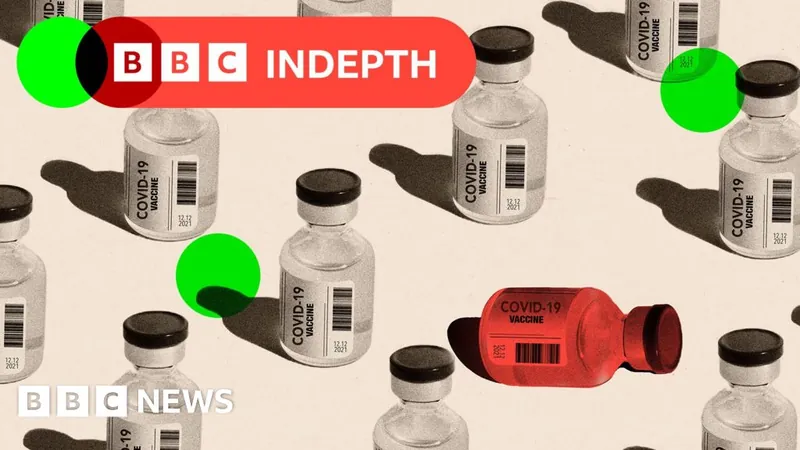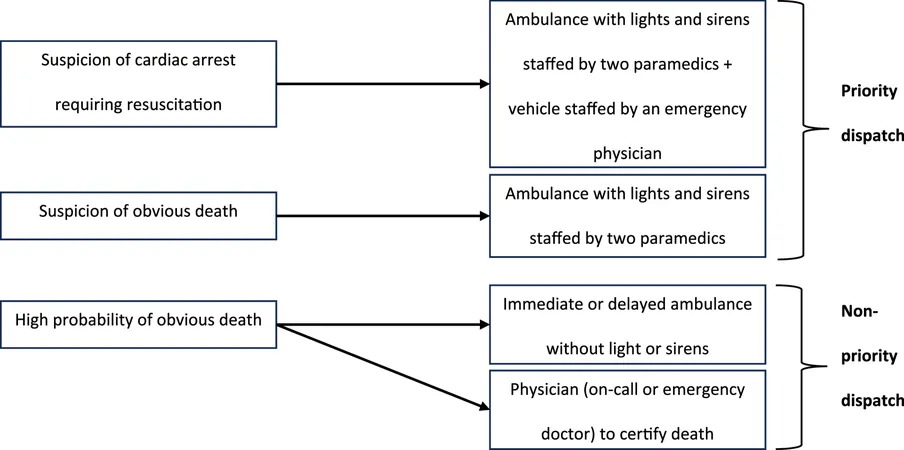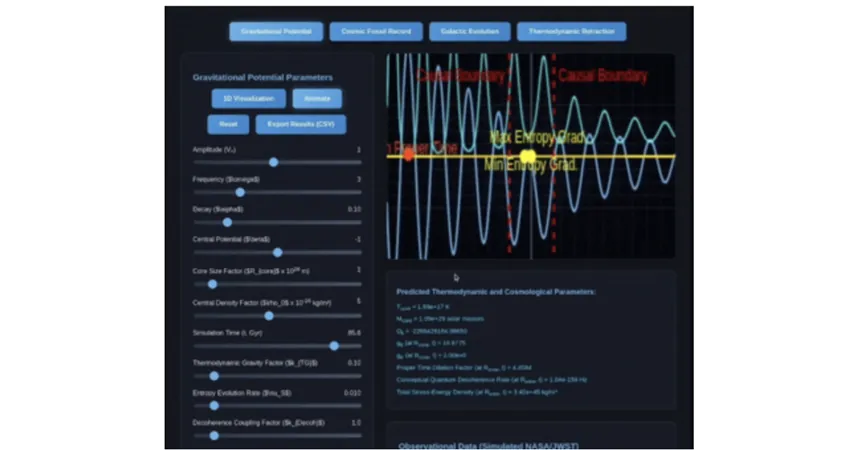
The Alarming Decline of Vaccine Confidence: What’s Fueling the Distrust?
2025-01-16
Author: Emma
In the wake of the global pandemic, COVID-19 vaccines have undeniably saved countless lives—research suggests around 475,000 in the UK alone, preventing many more from hospitalization and severe illness. Initially hailed as a monumental achievement in public health and the key to restoring normalcy after prolonged lockdowns, vaccines have unfortunately become a source of growing skepticism among the public.
Dr. Simon Williams, a public health expert at Swansea University, notes this paradox: "One of the most successful innovations in public health history has led to a surprising reduction in overall vaccine confidence." According to the Vaccine Confidence Project, only about 70% of UK adults deemed vaccinations safe and effective by 2023, a stark drop from 90% in 2018. This decline is not only seen in the UK; a global trend is evident, as 52 of 55 surveyed countries have recorded a dip in vaccination trust since 2019.
A concerning poll by YouGov reveals an increasing number of adults suspect vaccines harbor undisclosed harmful side effects, rising from 19% in 2019 to 30% in early 2024. Notably, childhood vaccination rates have also declined, threatening herd immunity with potentially serious consequences.
The Shift in Trust: A Personal Account
The COVID inquiry in the UK has begun to dissect the vaccine rollout, highlighting how attitudes shifted so dramatically during the pandemic. Dr. Helen Wall, a GP from Bolton, witnessed this firsthand when her town became a focal point of rising Covid infections amid the Delta variant outbreak. While the initial response was one of solidarity and community spirit, as the vaccine rollout progressed, sentiments changed. “People began questioning my motives; they viewed me as part of a misleading system,” she recalls, noting that trust eroded quickly, leading to protests and even threats against healthcare workers.
Historical Context: Vaccine Hesitancy is Nothing New
Vaccine skepticism is not a novel issue; its roots reach back to the inception of vaccination in the late 18th century. Protests emerged against mandatory smallpox vaccinations, and various vaccines have faced controversy over the years. A particularly damaging episode occurred in 1998 when a fraudulent study by Dr. Andrew Wakefield falsely linked the MMR vaccine to autism, igniting a decade-long decline in vaccination rates that left many vulnerable to outbreaks, including a significant rise in measles cases in the UK.
The Role of Misinformation in an Age of Connectivity
The digital age has exacerbated the spread of misinformation. Research indicates that a concerning 20% of parents reported encountering vaccine-related misinformation online in 2023—a considerable increase from just 6% the previous year. The rapid dissemination of inaccurate health information via social media has created a precarious situation where misleading content can reach millions in an instant.
Young adults, particularly those aged 18-24, have shown the steepest decline in vaccine confidence, dropping from 80% to under 60% from 2019 to 2023. Their unique experiences during the pandemic—a sense of disenfranchisement as restrictions limited their social interactions—may contribute to their reluctance to embrace vaccinations.
Safety Concerns and Vaccine Fatigue
The rapid development of COVID vaccines raised eyebrows. While the primary goal of the vaccines was achieved—protection against severe disease—the reality that their effectiveness waned against infection in a matter of months fueled skepticism. Additionally, the associations of certain vaccines with rare side effects like blood clots and heart inflammation propagated fears among the public.
Moreover, a sense of “vaccine fatigue” permeates society today. With ongoing recommendations for boosters and new vaccines, even healthcare professionals are experiencing exhaustion, leading to decreased flu vaccine uptake within the NHS.
A Call to Action: Rebuilding Trust in Vaccination
Experts urge health authorities to address the root causes of vaccine reluctance. Dr. Williams emphasizes the need for clear communication about the dangers of vaccine-preventable diseases. The lessons learned from tobacco control campaigns serve as a model for effectively highlighting the risks associated with not getting vaccinated.
Furthermore, educators should capitalize on this opportunity to enhance the understanding of vaccines among young people. Prof. Heidi Larson advocates for engaging curricula in schools that present the science of vaccines holistically, ensuring future parents recognize their significance.
As vaccine confidence wanes across Europe, stakeholders must not assume recovery will occur spontaneously. A concerted effort is essential to reverse this trend and rebuild trust, ensuring public health remains resilient in the face of emerging infectious diseases.
The urgency cannot be overstated; the implications of widespread vaccine hesitancy could lead to a resurgence of preventable diseases that threaten the health of the entire population.









 Brasil (PT)
Brasil (PT)
 Canada (EN)
Canada (EN)
 Chile (ES)
Chile (ES)
 Česko (CS)
Česko (CS)
 대한민국 (KO)
대한민국 (KO)
 España (ES)
España (ES)
 France (FR)
France (FR)
 Hong Kong (EN)
Hong Kong (EN)
 Italia (IT)
Italia (IT)
 日本 (JA)
日本 (JA)
 Magyarország (HU)
Magyarország (HU)
 Norge (NO)
Norge (NO)
 Polska (PL)
Polska (PL)
 Schweiz (DE)
Schweiz (DE)
 Singapore (EN)
Singapore (EN)
 Sverige (SV)
Sverige (SV)
 Suomi (FI)
Suomi (FI)
 Türkiye (TR)
Türkiye (TR)
 الإمارات العربية المتحدة (AR)
الإمارات العربية المتحدة (AR)